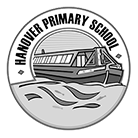How we learn at Hanover
We want every pupil at Hanover to love coming to school and to be enthusiastic about their learning.
Hanover's curriculum is designed to ensure that children are interested, challenged and stimulated through a creative and rigorous approach to teaching and learning.
We want our children to understand the world around them. We want them to develop skills and knowledge, and, crucially, to understand why these are so important. We try to ensure that the curriculum represents our community, that we talk about the big issues that will face our children, and that we equip them for the next chapter in their lives. We benefit from a fantastic central London location, and we make use of all that the city offers - from visits to museums and galleries, to exploring community gardens and parks, visiting theatres and cinemas, and getting to know the famous landmarks of our capital city. Every class goes on at least one trip per term to support their curriculum learning.
Critical to our intent is the development of character. Our vision and values statement outlines how important this is at Hanover. We expect all pupils to build the Happy Hanover Habits of being Kind, Brave and Responsible in the way they conduct themselves.
English and maths are central to our curriculum. The mastery of early reading and the foundational aspects of mathematics are essential if children are to access the rest of the curriculum. However, we value the other subjects just as highly. We build in a range of enrichment projects in each phase - from ukulele lessons for all children in Year 2, the drumming and dance project in Year 5, to our camping residential in Year 6,or inter-school sports competitions - because we know that these opportunities are hugely beneficial and enjoyable for our children.
For more information on what is taught in each subject, please see the Curriculum menu.
Progression in learning
In order to ensure children are able to build upon prior knowledge, learning at Hanover is carefully sequenced so that we can ensure progression across all subjects. Click below to see how we sequence the skills and knowledge for each subject.
Art progression mapComputing progression mapDesign and Technology progression mapEnglish progression mapGeography progression mapHistory progression mapLanguages progression mapMathematics progression mapMusic progression mapPhysical Education progression mapPersonal, Social Health and Economic Education progression mapReligious Education progression mapScience progression map

